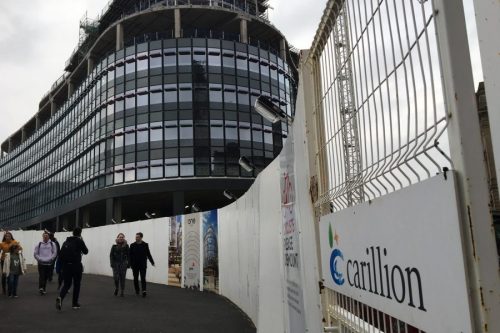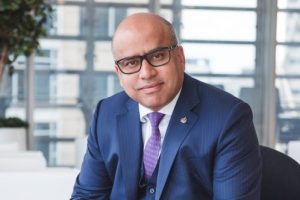Former Carillion boss banned for eight years

Carillion’s former CEO has been disqualified as a director for eight years, following his conduct that led to the firm’s demise.
Richard Howson served as CEO of the firm from 2011 until 2017. Carillion employed 18,000 people in the UK when it collapsed into liquidation in January 2018 with liabilities of almost £7bn.
It was building One Chamberlain Square in Birmingham when it collapsed.
The news follows the 11-year boardroom ban of Zafar Khan, who served as Carillion’s finance director for less than a year prior to its collapse and the 12-year ban of Richard Adam, who served as the group finance director of Carillion between 2007 and 2016.
Howson is accused of falsifying and concealing the reality of major contracts that became loss-making such as Midlands Metropolitan Hospital, Battersea Power Station and Royal Liverpool University Hospital.
He caused Carillion to procure payments from Wipro in 2013 totalling £39m for an IP assignment agreement and for the termination of charges supposedly payable by the firm for a master services agreement. The company then wrongly reported and accounted for these payments as profits in its 2013 financial statements.
This resulted in a breach of International Accounting Standard (IAS) 18, IAS 32 and the IFRS Conceptual Framework for Financial Reporting, an overstatement of profit by £39m and an understatement of net debt by £41m.
Again, Howson is said to have caused Carillion to secure payments from Wipro in 2016, totalling £40m in relation to intellectual property and mobilisation costs.
In its 2016 financial results, Carillion then wrongly reported and accounted for such payments as profit, therefore in breach of IAS 18, IAS 32, IAS 38 and the IFRS Framework for Financial Reporting, resulting in the overstatement of profit by £34.4m and understatement of net debt by £39.2m.
In both cases, the Insolvency Service says Howson ought to have known of the false accounting, of the profit overstatement, of the net debt understatement and of the concealment from the auditors of the true picture regarding Carillion’s obligation to make repayments to Wipro.
For the accounting periods of 2013, 2015 and 2016, the Insolvency Service says it believes that Howson should have known that Carillion had failed to disclose to its auditors information relating to the major contracts.
In addition, Howson is accused of allowing the firm to prepare and publish financial statements for 2015 and 2016 which did not give a true and fair view of the company.
For example, in 2015, Carillion’s profits should have been £65.3m rather than £155.1m and in 2016, the firm should have reported a loss of £61.7m) rather than a profit of £146.7m.
Some of Howson’s market announcements in 2016 and 2017 have also come under fire as they were misleading about the reality of Carillion’s financial performance, position and prospects.
A final dividend payment of £54.4m in 2016 which could not have been justified as the financial statements of that period did not give a true and fair view. It also was not made in the interests of Carillion, its members or its creditors and was not one that the company could reasonably afford.
An Insolvency Service spokesperson said:
“The Insolvency Service, acting on behalf of the Secretary of State for Business and Trade, has accepted a disqualification undertaking from Richard Howson for 8 years for his conduct as a director of Carillion Plc.
“As the litigation against the remaining directors is ongoing, with a trial set to commence the week of 16 October 2023, we are unable to comment any further”.









